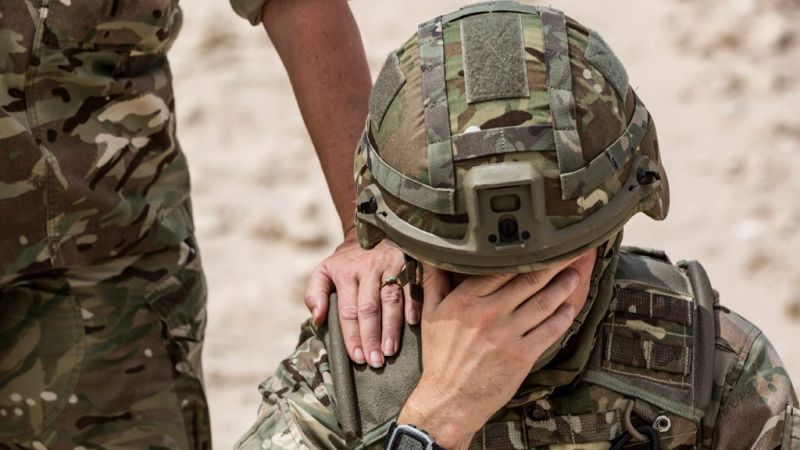Military Mental Health
 Those who have served in the military are more likely to suffer from mental illnesses than those with no military experience. As of 2015, over 20 million individuals (about the population of New York) had served in the United States military in conflicts from WWII to Operation New Dawn (Vespa, 2020). Diagnoses including post traumatic stress disorder (PTSD), depression, anxiety, moral injury, guilt, and traumatic brain injuries (TBI) are higher in military and veteran populations than in the general public.
Those who have served in the military are more likely to suffer from mental illnesses than those with no military experience. As of 2015, over 20 million individuals (about the population of New York) had served in the United States military in conflicts from WWII to Operation New Dawn (Vespa, 2020). Diagnoses including post traumatic stress disorder (PTSD), depression, anxiety, moral injury, guilt, and traumatic brain injuries (TBI) are higher in military and veteran populations than in the general public.
PTSD and TBI have been termed the “signature wounds” of the conflicts in Afghanistan and Iraq. It is estimated that 30% of veterans returning from deployments to war zones could be diagnosed with PTSD. PTSD can also result from training accidents and military sexual trauma. Those close to a person suffering from PTSD may develop similar symptoms – a syndrome referred to as secondary PTSD. TBI’s are the diagnosis given when the brain is injured. They can be caused by a blow to the head or from the blast effect of an explosion. TBI’s can result in a variety of changes in cognitive functioning including memory issues, difficulty regulating emotions, and slower thinking, People suffering from both PTSD and TBI often experience depression, severe anxiety, irritability, and social isolation.
Because the military culture highly values toughness and the ability to carry on regardless of personal pain, many experiencing the symptoms listed above hesitate to accept the help they need. Having others to talk to who have had similar experiences and who understand the expectations and demands of the military culture can assist in healing. Gaining the support of a mental health professional familiar with these issues is another way to heal.
Therapies
Recommended therapies by the Veterans Administration and Department of Deployment are EMDR, cognitive processing therapy, prolonged exposure therapy and some of the tailored cognitive behavior therapies such as for insomnia and depression. Other sources recommend mindfulness, acceptance and commitment therapy, and dialectical behavior therapy.
Get started at People to People today.
